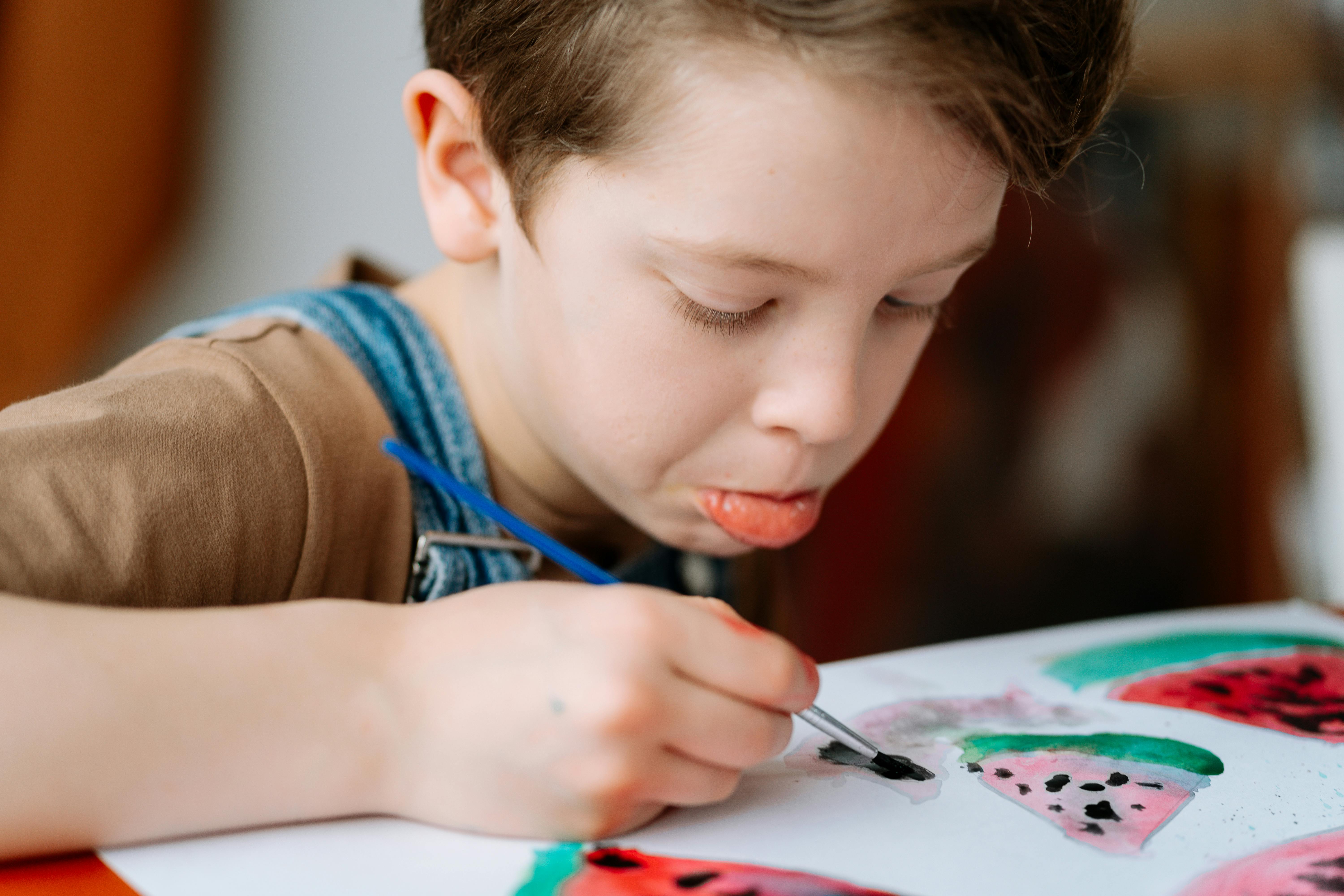
Help! My Child Can’t Focus During Homeschool Lessons
Hard truth: As homeschooling parents, sometimes we expect children to focus beyond their capabilities.
We all can have problems focusing at some point, right? And sometimes, we inadvertently apply our adult expectations of what focusing should be onto our children in our well-intentioned quest to find how to keep homeschooled kids focused on homework.
Yes, homeschooling can be a rewarding experience, but it's no secret that it can also be challenging. One common hurdle many homeschooling parents face is keeping their children focused during lessons. If you've ever found yourself wrestling with a distracted child mid-math worksheet, you know exactly what we’re talking about.
What is Focus?
Let’s define what focus is. Focus is the act of directing attention toward a goal or task. It's the intentional decision to prioritize one thing over another. When your child focuses on their schoolwork, they are making the choice to direct their energy to learning.
Concentration is the sustained application of mental effort to a task with deep engagement and immersion. When your child concentrates on solving a math problem, they’re absorbed in the process, blocking out distractions and focusing on the details.
While focus is about intention, concentration is about execution. Your child may focus on a lesson, but if they’re distracted, they won't be able to concentrate.
It’s possible to focus on a task without concentrating on it, and vice versa. For instance, your homeschooler might focus on the illustrations of a book without concentrating on the story itself because they are distracted by a sibling’s music.
Focus and concentration are about balance. It’s less about keeping your kids focused for homeschooling and more about finding what works best for each unique child. By helping your child to both focus and concentrate, you’re helping them lay the foundation for skills they’ll use for the rest of their lives, not only in their formal education.
The Key to Focusing for Homeschoolers
The key to successful homeschooling often lies in small adjustments. Remember, every child is unique. What works for one child may not work for another. And what works for your child is valid and important. Let’s keep attention spans in perspective.
- 3-year-old: 6 to 8 minutes
- 4-year-old: 8 to 12 minutes
- 5- to 6-year-old: 12 to 18 minutes
- 7- to 8-year old: 16 to 24 minutes
- 9- to 10 -year old: 20 to 30 minutes
- 11- to 12-year-old: 25 to 35 minutes
Be patient, be flexible, be willing to try new things, and most importantly, be positive. Finding what works for your child will likely be a process that even changes over time as they grow and develop.
Try Shorter Lessons
Shorter, more frequent lessons can be a game-changer. Instead of long, drawn-out sessions, try breaking down the material into smaller, more digestible chunks. A timer can be a helpful tool to keep both you and your child on track.
Take Breaks
Regular breaks are essential for maintaining focus. Short, frequent breaks can help literally get oxygen flowing and keep your child's mind sharp. Try jumping jacks, simple kid-friendly yoga poses, or intentional breathing exercises during transition times to recharge.
Test Alternative Desk Setups
Flexibility is key when it comes to homeschooling. If traditional desk-and-chair learning isn't working, consider something new. A cozy couch or a beanbag chair can provide a more comfortable learning environment. Your child may even enjoy standing up or sitting on the floor for some of their lessons.
Think About Diet
Finally, it's important to pay attention to your child's diet. Certain foods can affect energy levels and focus. Start your child’s day with a healthy breakfast. Limiting sugary drinks and processed foods may help improve your child's concentration. Include brain foods in your child’s diet. Offering snacks throughout the day helps satiate your child’s growing brain. Of course, talk with your child’s doctor about your concerns regarding food, or any other factors that you suspect could affect their concentration and focus.
Prioritize Good Sleep
The earlier you can build good sleep habits for your child, the better. If your child struggles with focus and attention, get serious about their sleep. Children aged 3–5 years need 10–13 hours of sleep per night, including naps. School-age kids, 6–13 years, need 9–12 hours. Have a consistent bedtime routine in place and stick to it. End screen time at least an hour before bedtime and remove technology from your child’s room. Make sure their bedroom has blackout curtains and that they are comfortable in their bed.

